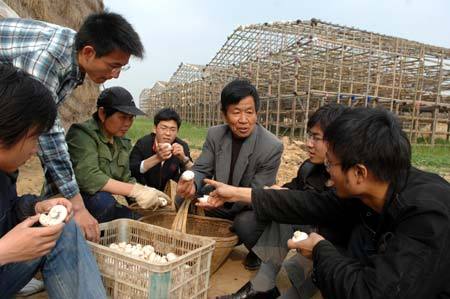VII-2 Question: The Chinese rural market is in desperate need of capital, but the domestic commercial banks are quickly retreating from that market. This phenomenon poses a big problem for developing a new countryside. In the next round of financial reforms, what kinds of reforms will take place in rural areas, and what will the government do to satisfy the rural market demand for capital?
A: In the Chinese financial system, rural finance is probably the weakest link. It is hard for rural financial institutions to continue to operate because they are scattered around the countryside. Loans to farmers are small and it is difficult to investigate their credibility. According to a sample survey, in the past three years, the proportion between rural loans and the total national loans decreased 1 percent or more each year. In rural areas, it was very hard for the farmers and small- and medium-sized companies to get loans from legal financial institutions. Currently, only the Agricultural Bank of China still maintains branches below the county level. The other commercial banks have nearly all retreated, even from counties.
Statistics show that China has over 37,000 townships, 653,000 villages, 249 million farming households and over 800 million rural residents. It is actually a huge market with great potential. Particularly, China's current undertaking of building a new countryside has created a huge demand for capital. It is initially estimated that by 2020, the undertaking will need 15-20 trillion yuan. However, the lack of rural financial institutions has become a major bottleneck of such grand mission.
In order to solve the mounting problem in rural financial markets, China in the next few years will promote rural financial services in terms of credit, establishing rural insurance markets and primary agricultural products futures markets, so as to optimize the rural financial system. In 2007, China promulgated relevant rules and regulations on establishing township banks, loan companies and rural mutual cooperatives. The township banks are responsible for attracting farmers' deposits and to give loans to farmers. The loan companies are responsible for providing loans to small- and medium-sized rural companies The rural mutual cooperatives are to collect money from farmers and give small sum loans to its members. Pilot projects for setting up township banks have been initiated in six provinces (regions) since February, 2007 and will expand to another 15 provinces (regions) in 2008. With all those policies in place, it is possible that the rural finance will enter a golden development period.

(China.org.cn)